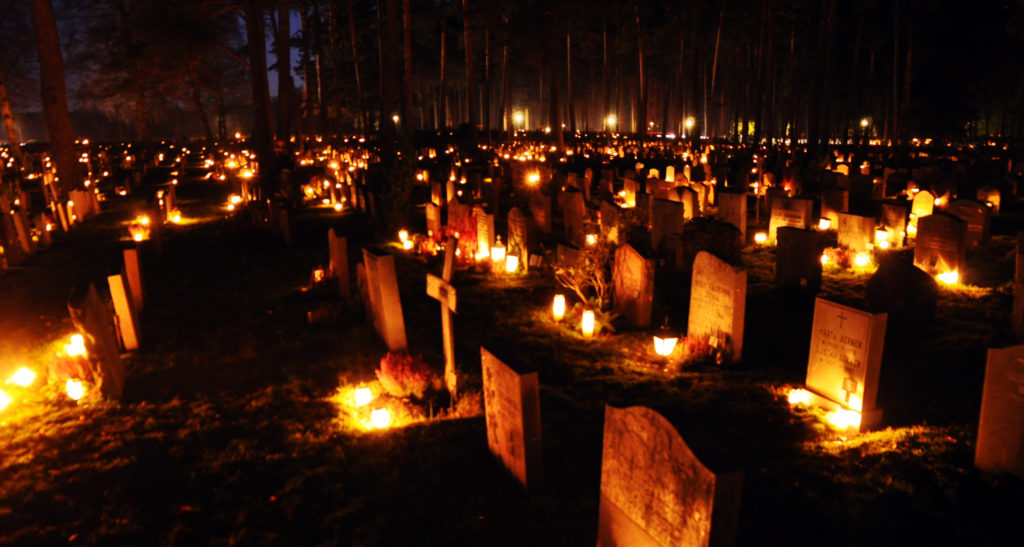Blessing over Woe
Luke 6:20-31
All Saints Sunday
Analysis by Brad Haugen
20 Then [Jesus] looked up at his disciples and said:
“Blessed are you who are poor,
for yours is the kingdom of God.
21 “Blessed are you who are hungry now,
for you will be filled.
“Blessed are you who weep now,
for you will laugh.
22 “Blessed are you when people hate you, and when they exclude you, revile you, and defame you on account of the Son of Man. 23 Rejoice in that day and leap for joy, for surely your reward is great in heaven; for that is what their ancestors did to the prophets.
24 “But woe to you who are rich,
for you have received your consolation.
25 “Woe to you who are full now,
for you will be hungry.
“Woe to you who are laughing now,
for you will mourn and weep.
26 “Woe to you when all speak well of you, for that is what their ancestors did to the false prophets.
27 “But I say to you that listen, Love your enemies, do good to those who hate you, 28 bless those who curse you, pray for those who abuse you. 29 If anyone strikes you on the cheek, offer the other also; and from anyone who takes away your coat do not withhold even your shirt. 30 Give to everyone who begs from you; and if anyone takes away your goods, do not ask for them again. 31 Do to others as you would have them do to you.”
DIAGNOSIS: Woe
Step 1: Initial Diagnosis (External Problem): Eulogizing about Ourselves and Others
“He or she was such a saint,” we say when we eulogize—when we say a “good word” about someone. We eulogize based on the good things we believe that a person has done in his or her life. What will people say about us after we are dead? Will they say, “He certainly was no saint?” Or will they say, “She was such a saint—remember all the good that she did and all the people who loved her?” What will the verdict be? Or for that matter, what are people saying about us now? What do they really think about us? Our blessing and our woe depend on the eulogy, the “good word,” that is either spoken or withheld.
Step 2: Advanced Diagnosis (Internal Problem): Our Word against God’s
It’s easy to read Jesus’ sermon as conditions we need to fulfill in order to be blessed—as in you must become poor and hungry and sad and hated and excluded and reviled and defamed on account of Jesus, in order to receive the kingdom of God and the reward of heaven. The problem is we’d never actually want to live according to those conditions (poverty, hunger, weeping, being hated, etc.), no matter the reward. If we exalt poverty, hunger, sadness, and hatred from others—if even for a heavenly reward—we’d be glorifying suffering. We’d be subscribing to a kind of “slave morality” (Nietzsche) that leads to pitying ourselves and resenting others.
So instead, we adhere to our national creed in order to achieve “life, liberty, and the pursuit of happiness.” After all, we’re convinced that obtaining life and liberty and pursuing happiness is the stuff of good eulogies! We can’t comprehend why Jesus would say “woe to us” when we strive for the things that are actually good for us (wealth, food, laughter, people speaking well of us, etc.). We rationalize that Jesus can’t be serious about the woes.
Step 3: Final Diagnosis (Eternal Problem): God’s Word against Ours
But it’s not simply our word against God’s. It’s God word against ours, finally. And God’s word addresses all of God’s people—together—not just each of us as individuals. We may think we live in a world where we are not our brother or our sister’s keeper. Like Cain, our response to God is, “…am I my brother’s keeper?” (Genesis 4:9NRSV). And like Cain, we believe the answer is, “No, we are not responsible for our brother or our sister (or our neighbor) when our brother or sister (or neighbor) makes us angry.” When in our anger we kill them off in our hearts, we believe we are no longer responsible for them.
But God sees things differently. God sees us as a people, not just as individuals. The reason for woe in Jesus’ sermon is people living at the expense of other people: God’s people living at the expense of God’s people. The rich live at the expense of the poor; the full live at the expense of the hungry; those who are laughing live at the expense of those who mourn and weep; the people of whom others speak well live at the expense of others who are hated, excluded, reviled, and defamed. God says, “Woe to us,” because of the ways in which we have taken from our brother or sister or neighbor in need; finally, God does not bestow his blessing upon our individual achievement of “life, liberty, and happiness.”
PROGNOSIS: Blessing
Step 4: Initial Prognosis (Eternal Solution): God’s Eulogy to His People
Having laughed and eaten more than our fill, and having bought things and sought the company of people at the expense of our neighbors, we are dead to God. At this point, we wouldn’t think that God has anything to say to us. But God does speak in the words of Jesus from the cross. Jesus is poor, hungry, weeping, hated, excluded, reviled, and defamed. His suffering and death on the cross is the result of our living at his expense and the expense of his people. And yet from a place of woe, the cross, which should rightfully be our place of woe, Jesus orders that his Father bless us instead: “Father, forgive them; for they do not know what they are doing” (Luke 23:34NRSV). On the cross of Jesus Christ, God takes our woe from us and gives us his blessing of forgiveness instead. This is God’s eulogy—God’s “good word”—to his people who are dead. And the blessing of God’s forgiveness raises his people to new life together with Christ.
Step 5: Advanced Prognosis (Internal Solution): God’s Good Word Takes Hold of Our Hearts
God’s eulogy is not like our eulogies. His eulogy actually raises the dead—all who are dead to God in their sin. God’s good word of forgiveness spoken by Jesus Christ raises us from the dead so that we can actually hear that good word ourselves. God’s blessing reaches into our poverty, our hunger, our tears, and the hatred among us. The blessing of God’s love in Jesus takes hold of our hearts, so that we can trust God’s promise of forgiveness and prepare to obey the rest of our Lord’s commands.
Step 6: Final Prognosis (External Solution): God’s Good Word Shown Forth in Our Lives
Rather than remain agents of woe who live at the expense of others, we become agents of God’s blessing instead. Through our words and actions, we become agents of the good word that God has spoken to us in Jesus. We live for the benefit of our neighbors rather than at their expense. We may be hated and excluded and treated as an enemy for serving our neighbors, but we trust all the more that God’s blessing cannot be taken away from us. Rich in the fullness of God’s love, we give joyfully of ourselves without expecting anything in return.






You must be logged in to post a comment.